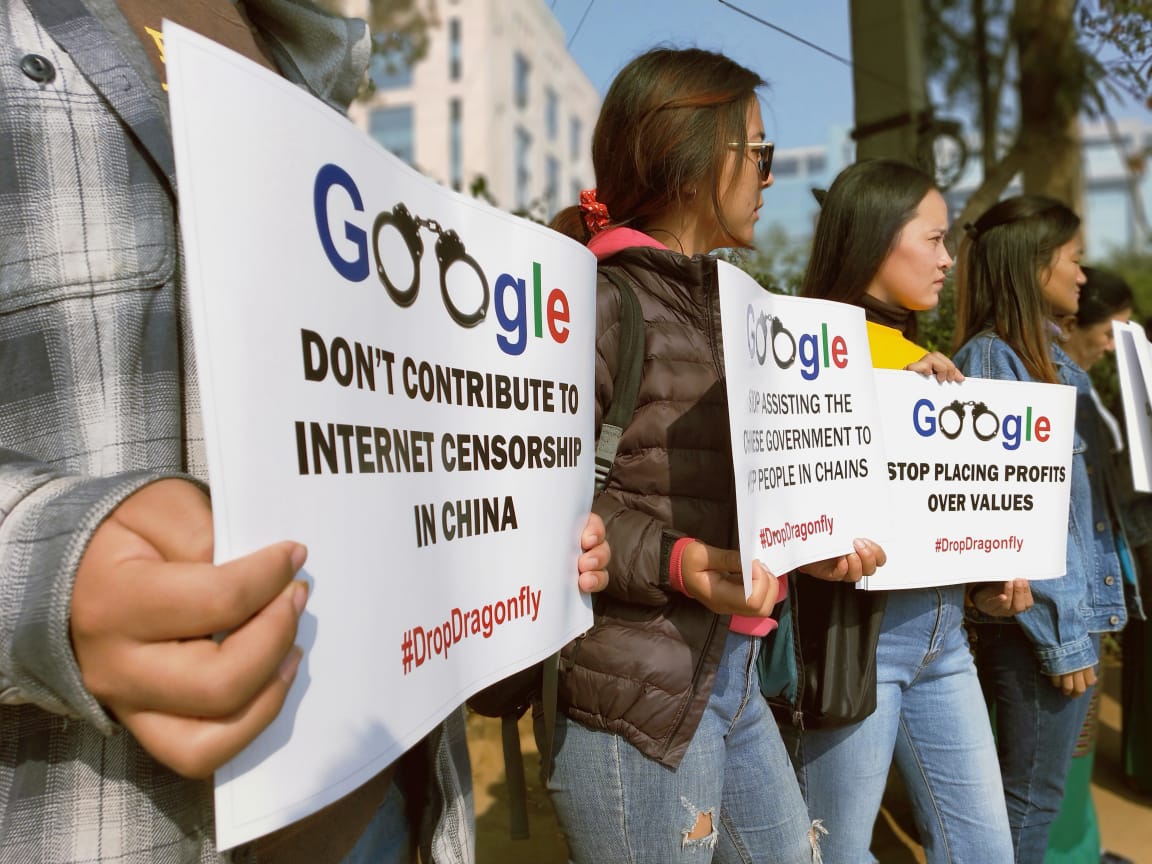January 18 2019 | Third letter to Google Management
Ronan Harris,
Managing Director, Google UK & Ireland
Six Pancras Square
6 Pancras Rd
Kings Cross, London
N1C 4AG
cc’d Sundar Pichai, Chief Executive Officer, Google
Dear Mr Harris and Mr Pichai
We write to you on Internet Freedom Day regarding Google’s Project Dragonfly. Previous letters to Mr Pichai about Project Dragonfly – sent in August and November 2018 – have not received any reply of acknowledgement.
We believe this represents a lack of appreciation of the justifications of our concerns about Dragonfly, and is a further example of the contradictions within your company, where you advocate for no limitations on access to information in some territories (for example in the EU related to copyright law), yet are prepared to comply with China’s repressive censorship laws through Dragonfly. We note your claim made in December 2018 that there are “no plans” to launch Dragonfly, but this is not sufficiently reassuring. With a million Uyghur people interned in East Turkestan, and widespread agreement that rights in China have deteriorated still further, we urge you to make a public statement immediately to announce that the project has been cancelled.
We are deeply concerned that Google would develop a product that would automatically identify and filter ‘blacklisted’ websites blocked by China’s Great Firewall as well as banned search terms pertaining to human rights, democracy and the Dalai Lama. If Google were to proceed with launching Dragonfly in China, it would constitute a dramatic shift in policy and a complete turn-around from past positions taken by the company concerning freedom of speech, human rights, extreme censorship, and cyber-security. Following Google’s withdrawal from China in 2010, as a result of a hacking scandal and the company’s commendable refusal to self-censor, Google reiterated its commitment to a free and open web, stating “we don’t want to engage in political censorship”, adding that government restrictions “not only strike at the heart of an open Internet but also violate Article 19 of the Universal Declaration of Human Rights.”
It is highly alarming to find that Google, whose mission is ‘to organize the world’s information and make it universally accessible and useful’, is still considering submitting to China’s repressive policies that profoundly restrict freedom of information and promote distorted factual information. There is little doubt that ‘Dragonfly’ would have an immense negative impact on the human rights of Chinese citizens, Tibetans, Uyghurs and other nationalities who, like all global citizens, deserve an undivided internet and free access to information. The very existence of this project signals a failure to serve those for whom Google was designed, as well as a failure to engage with civil society organisations and many world governments, who have consistently raised concerns over the risks posed by technologies, if harnessed for detrimental ends.
Our concerns are clearly shared by large many Google employees, and Mr Pichai’s reported comments at a recent staff meeting – quoted as saying “I genuinely do believe we have a positive impact when we engage around the world and I don’t see any reason why that would be different in China”, and that plans were “exploratory” and in “early stages” – are not reassuring.
We are at a critical moment. Calls for Google to withdraw from Project Maven as well as the Cambridge Analytica scandal highlight the growing public concern over the ability of tech companies to undermine our rights and freedoms. IT companies such as Google should be at the forefront of challenging repressive regimes that use censorship to control society and must stand in support of connecting the world through information.
While Google may have hoped that it would eventually be able to return to a friendlier and more democratic China, the reverse is true: human rights have significantly deteriorated, and Tibet is described by Freedom House as the second “worst of the worst”, with only Syria less free. Google’s development of ‘Dragonfly’ appears instead to legitimise the repressive regime of the government of China and support the limiting of civil and political freedoms and promoting distorted information. Google would not purely be ‘respecting’ national laws if ‘Dragonfly’ launched in China; it would be actively implementing them.
Recognising Google’s moral and ethical responsibility, and the threat to the company’s global reputation, we request that you:
• Immediately cancel the ‘Dragonfly’ project.
• Draft, publicise and enforce a clear policy stating that Google will not assist states in their censorship efforts by undermining freedom of speech and human rights.
We request the opportunity to meet with you and other Google representatives to discuss our serious concerns and to answer a number of questions we have regarding the due diligence taken by Google prior to deciding to develop ‘Dragonfly’ in coordination with China’s government, and Google’s views on how this new development complies with the Global Network Initiative, of which Google is a participant. We are also aware that many Google employees are members of the Association of Computing Machinery, the code of ethics of which states that: “computing professionals should take action to avoid creating systems or technologies that disenfranchise or oppress people”, and “use their skills for the benefit of society.” This includes “promoting fundamental human rights and protecting each individual’s right to autonomy.” [6]
We look forward to hearing from you and for the opportunity to have a constructive dialogue with your company.
Yours sincerely,





